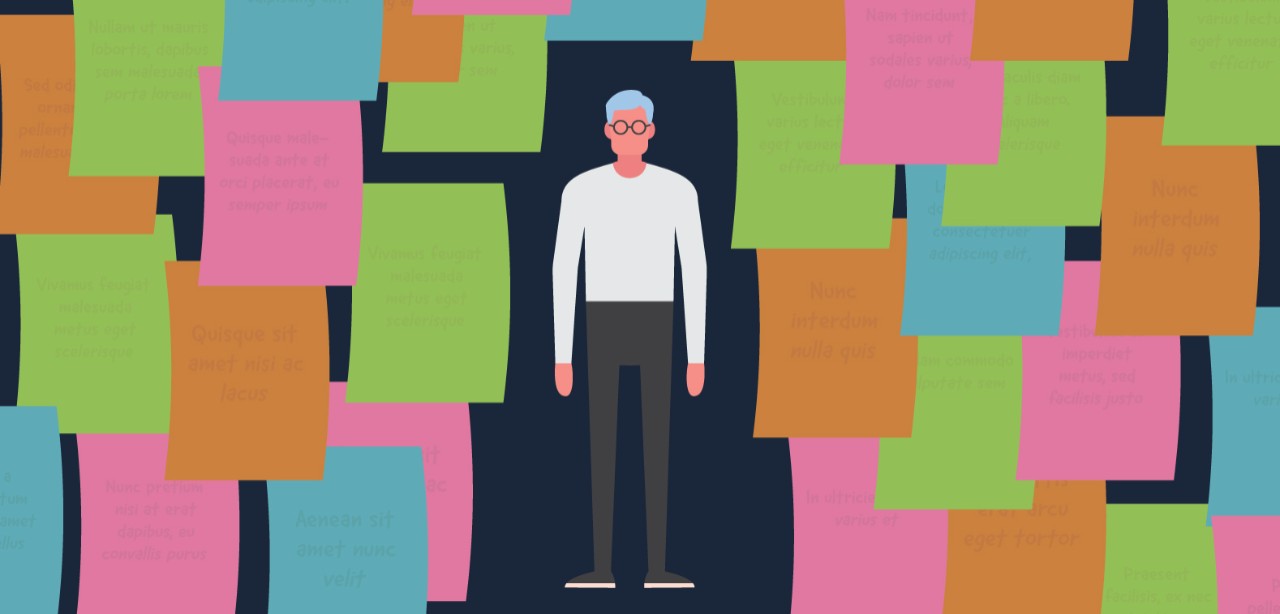What is Dementia?
Memory loss is often referred to as "just part of aging." However, dementia is not a normal part of aging and is more than just memory loss. Pay attention to specific signs that something more serious may be occurring, and always talk to your health care provider about any concerns that you have!
Although Alzheimer’s and dementia are terms that are often used interchangeably, but Alzheimer’s disease is a type of dementia. That means everyone who has Alzheimer’s disease has dementia, but not everyone who has dementia has Alzheimer’s!
Dementia is defined as a disorder, or group of symptoms, including memory loss and other symptoms that interfere with daily activities.1 This group of symptoms is caused by the damage or loss of nerve cells within the brain. The underlying causes of nerve cell damage varies by individual and can come from a variety of diseases or injuries. Alzheimer’s disease is one of the many diseases that cause dementia. Alzheimer’s disease is the most common type of dementia, accounting for 60-80% of all dementia cases.
Similar cognitive and psychological changes and symptoms occur across different types of dementia including Alzheimer's disease. Cognitive changes may include memory loss, disorientation, and difficulty with more complex functions such as communication, planning, organizing, coordination and problem solving.2 Psychological changes that occur with dementia may include inappropriate behavior, anxiety, depression, agitation, and hallucinations.2 All these changes are caused by the damage or loss of nerve cells associated with dementia.
Most types of dementia are irreversible and worsen over time. These types of dementia include:
- Alzheimer's disease
- Vascular Dementia
Vascular dementia is the second most common cause of dementia. The brain uses up to 20% of all oxygen and fuel obtained through the body’s vascular system and bloodstream.1,2 When the vascular system is damaged or blood flow to the brain is interrupted, this can have a profound effect on your brain’s functioning and overall cognitive ability and can lead to dementia.1 The main way individuals develop vascular dementia is through a series of strokes.1 For this reason, vascular dementia used to be referred to as “multi-infarct dementia.” Strokes temporarily stop the flow of blood and oxygen to the brain and can lead to damage to cells within the brain. This damage is what causes dementia in vascular dementia.1
- Lewy Body Dementia (LBD)
Lewy body dementia is one of the most common types of dementia and can be diagnosed by the Lewy bodies, or abnormal protein clumps, that form within the brain and are picked up on brain imaging techniques.3 Detection of Lewy Bodies in the brain can assist doctors in making an accurate diagnosis. Symptoms of Lewy Body Dementia include hallucinations and parkinsonism (tremors, movement issues).2,3
- Frontotemporal Dementia or "Pick's Disease"
In frontotemporal dementia (FTD), neuron cell damage and death occurs in a pattern that effects the frontal and temporal lobes of the brain.4 Common symptoms of FTD include diminished judgement, reduced empathy, decreased ability to use a filter or inhibit behaviors, and socially inappropriate behaviors.4 At this time there are no known risk factors except family history and there is no treatment or cure for Frontotemporal Dementia.
- Korsakoff Syndrome
Korsakoff syndrome is a chronic memory disorder most often caused by alcohol misuse or extreme malnutrition. Korsakoff syndrome is caused by a severe B-1 (thiamine) deficiency, which normally helps brain cells produce energy from sugar.5
Thiamine supplements can be taken to alleviate symptoms.5 However, there is no cure for Korsakoff Syndrome.
- Mixed Dementia
Mixed dementia is not a specific type of dementia, but is a term used to describe when a person presents more than one type of dementia at a time.6 For example, an individual may have vascular dementia and Alzheimer’s disease at the same time.
Other disorders are linked to dementia and include:
- Creutzfeldt-Jakob Disease (CJD)
CJD is caused by the infection of an organism called a prion in the brain.4 As the infection spreads, dementia like symptoms including psychological and behavioral changes appear.
There is no cure for Creutzfeldt-Jakob Disease and death normally occurs within 6 months of early symptoms developing.
- Huntington's Disease
Huntington’s disease is a genetic disorder that causes brain changes including the development of dementia symptoms such as cognitive decline, depression, and other behavioral and psychological conditions.3 There is no cure or way to slow the progression of Huntington’s disease and its associated dementia.
- Traumatic Brain Injury
Traumatic Brain Injury (TBI) is disruption of brain function due to a jolt or forceful impact of the head.3 A concussion is considered a mild Traumatic Brain Injury. TBI is a major risk factor for dementia, and risk goes up with the occurrence of multiple TBIs.3
- Parkinson's Disease Dementia (PDD)
Parkinsonism is a group of symptoms including tremors, rigidity and problems with movement.7,8
Parkinsonism is present in several illnesses including Parkinson’s disease. The presence of Lewy bodies is not uncommon in the brains of individuals with Parkinson’s disease and many go on to develop dementia.7 An important distinction between Parkinson’s disease and Parkinson’s disease dementia is that Parkinson’s disease does not normally affect life-expectancy. However, dementia does lessen life-expectancy.7,8
- Normal Pressure Hydrocephalus
Fluid can accumulate in the brain without causing pressure. This condition is called Normal Pressure Hydrocephalus. Normal Pressure hydrocephalus can occur after a head injury or illness such as meningitis.4
Symptoms tend to improve after treatment.4
Many other disorders or illnesses can cause dementia-like symptoms or conditions including brain tumors, nutritional deficiencies, medication side effects, and even common infections like a urinary tract infection.3
It is important for anyone experiencing changes in their memory or thinking to talk to their doctor to determine the cause of these symptoms and how to treat them.
REFERENCES:
- https://www.alzheimercalgary.ca/about-alzheimers-and-dementia/types-of-dementia/mixed-dementia
- https://www.mayoclinic.org/diseases-conditions/dementia/symptoms-causes/syc-20352013
- https://www.alz.org/alzheimers-dementia/what-is-dementia/types-of-dementia/korsakoff-syndrome
- https://www.parkinsons.org.uk/information-and-support/types-parkinsonism
- https://www.alz.org/alzheimers-dementia/what-is-dementia/types-of-dementia/korsakoff-syndrome
- https://www.alzheimercalgary.ca/about-alzheimers-and-dementia/types-of-dementia/mixed-dementia
- https://www.parkinsons.org.uk/information-and-support/types-parkinsonism
- https://www.alztennessee.org/info/related-dementias/parkinsons-disease-dementia
This Page Last Updated: October 11, 2021 at 1:35 PM
